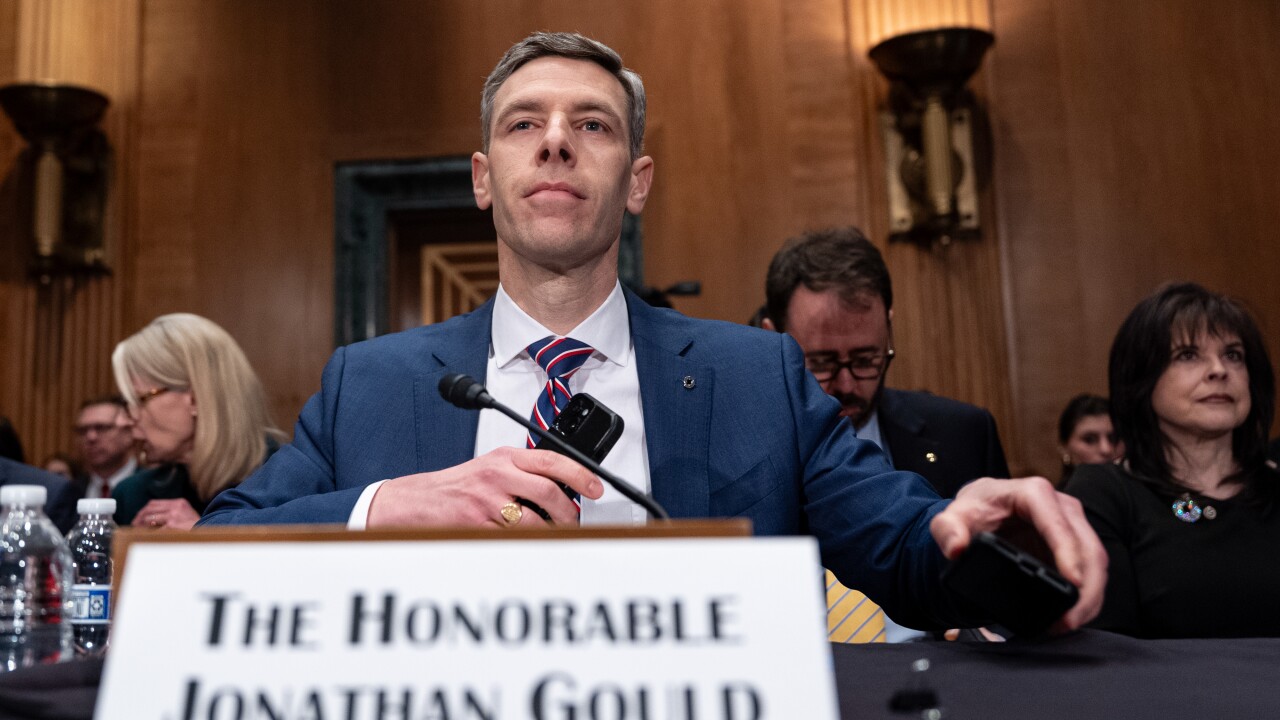The Department of Labor has issued two opinions that bankers say will level the playing field between banks and nonbank servicers of 401(k) and other retirement plans.
Processing Content
In letters responding to queries by Frost National Bank, San Antonio, and Aetna Life Insurance and Annuity Co., Hartford, Conn., the Labor Department gave banks the go-ahead to collect fees from the mutual funds they service while acting as trustees for the retirement plans that offer the funds.
"It's a wonderful result," said Eugene F. Maloney, corporate counsel at Federated Investors, Pittsburgh. "Now banks can fully participate in the defined contribution market."
Before the letters, both issued in May, the Employee Retirement Income Security Act of 1974 had been interpreted to prohibit a bank that was acting as trustee for a retirement plan from collecting fees from the mutual funds available in that plan.
But the Frost letter, and the related one to Aetna, gave banks the go- ahead to accept fees for shareholder services they provide to funds in retirement plans. These include record keeping and maintaining participant accounts.
Nonbank providers of these services have always collected these fees.
Banks have been held to a higher standard because they were believed to have discretion over a plan's investment options. Under the Frost letter, banks that change a plan's menu of funds must return shareholder service fees to the plan.
But under the Aetna letter, servicers, including banks, can change a plan's menu but keep the fees as long as they give the plan's sponsor at least 120 days notice. The sponsor can reject the change and terminate its relationship with the plan servicer.
The two rulings are likely to open the floodgates for banks that want to enter the burgeoning retirement business, said Mr. Maloney.
"I absolutely do expect more banks to get into this business," he said. "There was some subset of the banking community that wouldn't move forward until the question had been conclusively answered."
Frost, which has been in the retirement business for about 30 years, had already started to collect some fees from the mutual funds in the plans it services. Now, it can do so more comfortably, said Richard Kardys, a Frost executive vice president.
According to Mr. Kardys, the idea to ask the Labor Department to weigh in on the issue came when Mark Freeman, Frost's senior vice president of retirement services, suggested it might be possible to offset the loss of so-called 12b-1 fees by collecting servicing fees.
Historically under ERISA, banks, in their roles as trustees, can add or exclude funds from retirement programs. Therefore, they have been prohibited from accepting 12b-1 fees-which are usually used to pay sales commissions-from mutual fund companies.
But the Labor Department letters allow them to offset some of that lost opportunity by reaping service fees.
The letters clarified what was a murky area for banks-Wachovia or KeyCorp, for example-that offer a number of services to the mutual fund and retirement industries.
The American Bankers Association was pleased at the outcome, said Judith McCormick, senior trust counsel. It had sent a letter in conjunction with the Investment Company Institute to the Labor Department, asking for relief from the ERISA prohibition.
"Now, a bank setting up products as trustee for an employee benefit plan can look at both" the Frost and Aetna opinions "in order to figure out what fees they can take," Ms. McCormick said.





